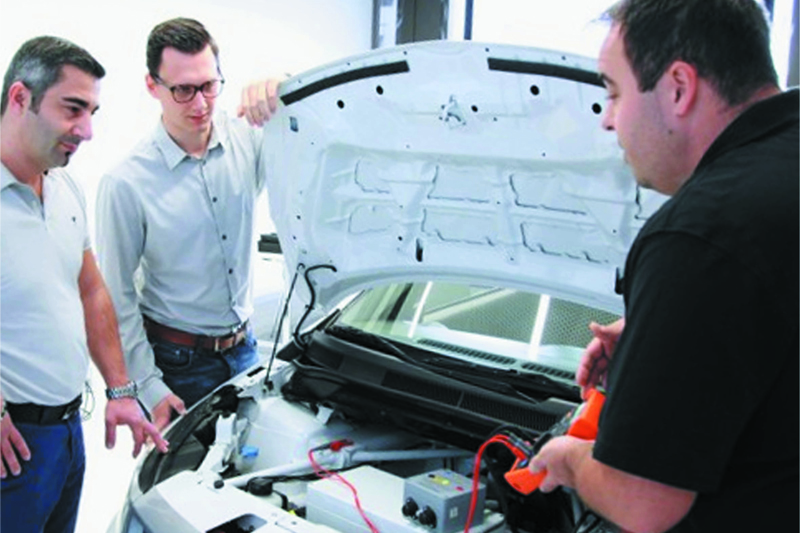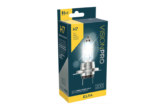
It is clear that hybrid technology’s current popularity, as well as its potential for future opportunities, is being utilised by both vehicle manufacturers and garages. ZF Aftermarket talks to PMF about whether distributors are also paying due diligence to the hybrid market – and if they are not, what is it costing them?
Parts-wise, in the thick of the hybrid generation, motor factors aren’t currently seeing much of a change in terms of the parts they need to stock and supply. As most electrical components could well last the lifetime of the vehicle, there is still a major market for consumables such as braking, steering and suspension components. Distributors probably won’t see much of a change until the balance shifts in favour of electric vehicles. But this balance will eventually tip, and now is the time for motor factors to start getting hybrid and electric savvy.
Sales on the up
Figures released by electric car campaigners have revealed that a record number of electric and plug-in hybrid cars were sold in the UK in 2017. Registrations for more environmentally friendly vehicles increased by more than 27% compared to 2016, up from 36,535 to 46,522. This rise has been attributed to the confusion around diesel cars being banned, greater awareness about EVs, and an increase in the amount of electric and hybrid cars being produced by key manufacturers, as well as a boost in infrastructure.
Wayne McCluskey, Technical Training Manager at ZF Aftermarket, explained, “The key message for motor factors is to be prepared. With hybrid vehicle sales on the rise, every link in the supply chain, including the motor factor, needs to have a certain level of knowledge and training about electric vehicles. Especially with regards to safety – as fixing and servicing electric parts is a very different ball game to the fixing and servicing of traditional parts.”
With passenger car systems operating at around 600V and 400A, there is ample opportunity for those unskilled in high voltage working to cause serious injury or death. These hazards are only likely to multiply with the next generation of electric vehicles, and mitigation of such risk makes the need for training all the more vital.
Two levels of training from ZF
ZF Aftermarket has announced that during the first quarter of 2018, it provided hybrid and electric training courses to several dozen UK garage technicians through the ZF (Pro) Tech Plus network.
The company provides two levels of training for those seeking proficiency in electric and hybrid vehicle systems. The more basic course takes a delegate to the ‘Electrically Informed Person’, or EIP, level of competence. To be fully qualified to work on the high voltage parts of the system, delegates have to pass the advanced level of ZF Aftermarket’s training offer and reach the ‘High Voltage Expert’, or HVE, level of competence. The company claims that this is the most comprehensive level of electric vehicle systems training available in the UK, and is the same as provided to ZF research and development staff and to certain vehicle manufacturers’ production line technicians.
To remain competitive, Wayne points out that while the market for consumables is still buoyant, distributors shouldn’t take their eye off the ball and should always be on the lookout for new opportunities.
“Cable sets could be a big opportunity for distributors,” he suggested. “Where electrical cables in a conventional vehicle are routinely removed and reinstalled multiple times, and connections probably tightened by feel, high voltage (HV) cables are only rated for a certain number of connection cycles. Terminations must be accurately tightened to the specified torque. This is because any abrasion of the terminals or incorrect tensioning can have a dramatic effect on electrical resistance, possibly leading to localised heating and subsequent fire risk.
“So there is a ready market for replacements. If motor factors were to hold reels of cable, a stock of terminals and invest in the necessary equipment and training, there’s an opportunity for them to provide bespoke HV cables on demand for workshops.”
Play your part to retain the status quo
The UK’s distributors also need to think about the long term effects of the changing market, and play their part in securing its integrity to secure the future of their own business model.
“It’s important for them to work ever more closely with the parts manufacturers, in terms of education and the sharing of technical knowledge,” Wayne continued. “Their customer base, the UK’s IAM garages, needs to be able to cope with the influx of hybrid vehicles and the natural move towards fully electric vehicles. If their technicians don’t have the necessary skills, then it will force these vehicles back to the main dealer; which will not only undertake the actual work, but will in many cases use their own VM parts. If the balance leans too far this way, their position will eventually be compromised as they will be forced out of the loop.”
For those distributors who look to the future, the rewards will be there for the taking. With the right partners, the right attitude and the right support, the UK motor factors can confidently take new business from a sector of the aftermarket that will continue to grow year on year.







